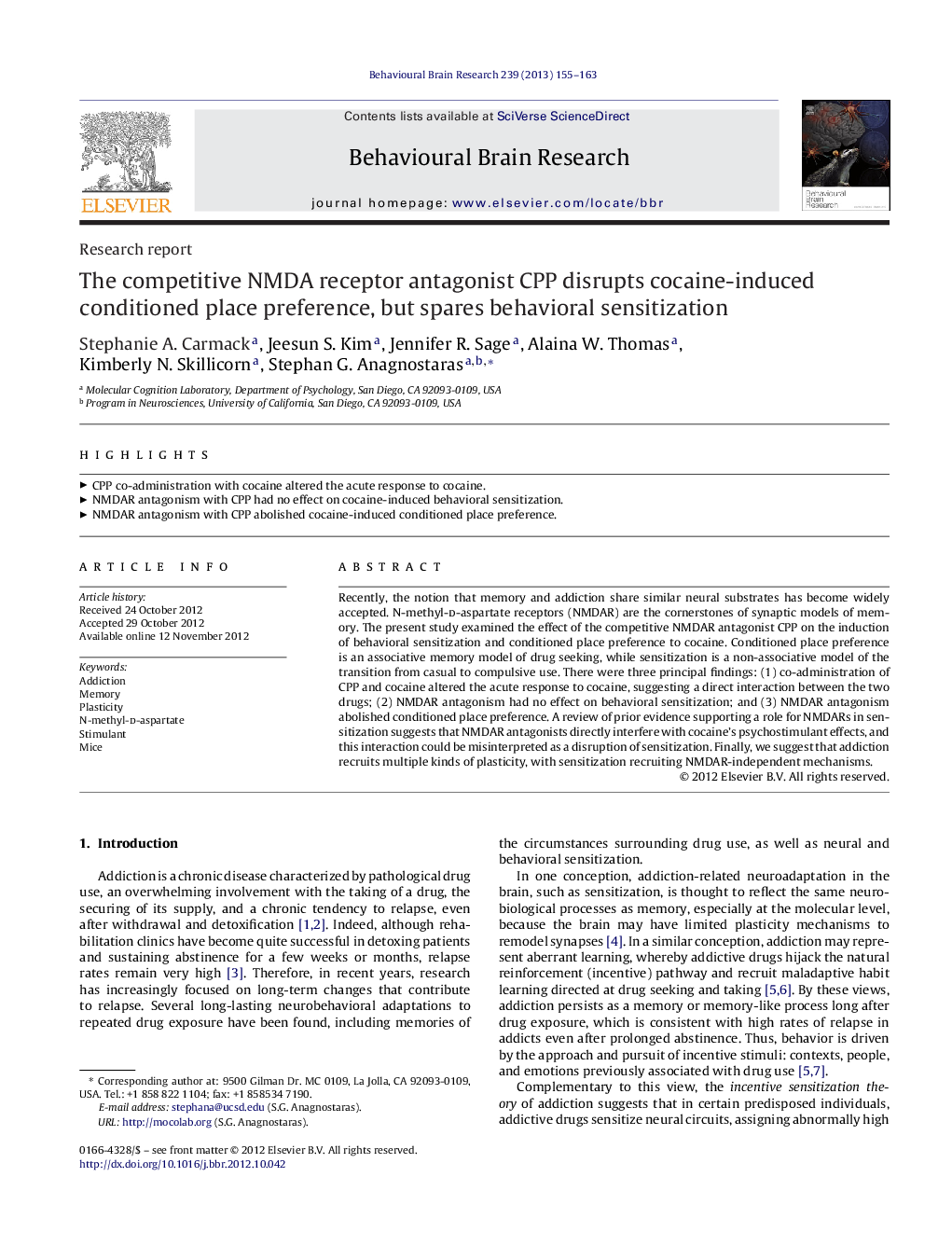| Article ID | Journal | Published Year | Pages | File Type |
|---|---|---|---|---|
| 4312891 | Behavioural Brain Research | 2013 | 9 Pages |
Recently, the notion that memory and addiction share similar neural substrates has become widely accepted. N-methyl-d-aspartate receptors (NMDAR) are the cornerstones of synaptic models of memory. The present study examined the effect of the competitive NMDAR antagonist CPP on the induction of behavioral sensitization and conditioned place preference to cocaine. Conditioned place preference is an associative memory model of drug seeking, while sensitization is a non-associative model of the transition from casual to compulsive use. There were three principal findings: (1) co-administration of CPP and cocaine altered the acute response to cocaine, suggesting a direct interaction between the two drugs; (2) NMDAR antagonism had no effect on behavioral sensitization; and (3) NMDAR antagonism abolished conditioned place preference. A review of prior evidence supporting a role for NMDARs in sensitization suggests that NMDAR antagonists directly interfere with cocaine's psychostimulant effects, and this interaction could be misinterpreted as a disruption of sensitization. Finally, we suggest that addiction recruits multiple kinds of plasticity, with sensitization recruiting NMDAR-independent mechanisms.
► CPP co-administration with cocaine altered the acute response to cocaine. ► NMDAR antagonism with CPP had no effect on cocaine-induced behavioral sensitization. ► NMDAR antagonism with CPP abolished cocaine-induced conditioned place preference.
